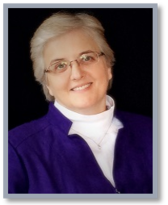911 DISPATCHERS - ERASING NEGATIVITY
BEGINS AT HOME!
Posted by Dr. Kelly R. Rasmussen

There are plenty of stories and facebook pages that highlight the tribulations of negativity in emergency dispatchers and the communications center. Now studies being published are screaming from the headlines that emergency dispatchers are susceptible for PTSD. This is not new information. Dispatchers need help for themselves and their families to overcome the negativity and cultivate a new paradigm of what the work is about!
WHAT IS NEGATIVITY?
1. The problem is this "negativity" affects the workplace, and then carries over into home life (and then it becomes systemic - going back and forth). Some people refer to this phenomenon in the center as drama, or stress, or even "divas." The problem is, with all of the highlighting and attention of stressors, people are still not HELPING the Heroes in that room!
EXPLAIN PLEASE
2. The misunderstanding is that people are identifying and targeting the wrong patterns, actions and behaviors. For example; an emergency dispatcher takes a horrible call involving a child (we all hate those). They get no recognition for their part in acting quickly and being resourceful. They get no resolution or closure. They go home and are crabby. The family/friends of the dispatcher do not get "it" and therefore complain that the dispatcher is always crabby anymore. That's all they see.
HUMAN NEEDS
3. We all have basic human needs and connection & love is right near the top. Somehow emergency dispatchers keep going to that job knowing that they at least "connect" with others who "get it" but on another level, many of them do not connect anymore with family or friends about how REAL the job is and the stressors that they must endure and live with. Everyone needs to meet their needs! And in the world of emergency dispatch - these folks have been overlooked, and forgotten for far too long. But you cannot tout how bad it is without giving them the assistance!
911 4 911
4. Research has found that certain protective factors (when used properly) fill up and actually create resilience in people in order to "bounce back" and become whole again. It has been proven that the better we are at becoming resilient, the more we can handle. Building better dispatchers today involves highly involved, critical thinking skills to help them become more knowlegeable about themselves and what drives them. In one such case a dispatch supervisor was facing a divorce shortly after his first child and even as the wife was pregnant with the 2nd. His cry for help was not brushed away with "well, get over it, it happens in this field" or "it's the job" or any number of other ways we dismiss one another. Together, we examined what basic needs he was or wasn't providing to his wife! She felt disconnected and overlooked because he was overly devoted to dispatch and had closed her out.
NIX THE NEGATIVITY
5. Understanding the dispatcher's basic human needs as to where they are right now in this job and helping them understand the needs of their closest supporters will help heal and build resilience. Many studies point to this conclusion. Additionally, protective factors such as the following must be taken into consideration!
Active Coping – includes activities that help remove stressors.
Planning – strategizes ways to handle the problem.
Seeking emotional and instructional support – turning towards other people or sources.
Restraint coping – waiting to deal with the problem.
Focus on and venting of emotions – considered maladaptive.
Disengagement, either mentally or behaviorally includes alternatives that divert attention.
Positive reinterpretation and growth – hands on, proactive approach.
Acceptance – includes engagement and defining a strategy to deal with the problem as it exists.
Denial – refusal to deal with the problem including taking steps of avoidance.
Turning to religion – seeking and involving external resources.
There are many ways we can help those who ANSWER THE CALL! Now is the time to ACT!

Dr. Kelly R. Rasmussen
DrKelly@success9-1-1.com
231-303-1241
